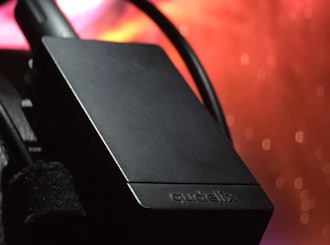Click to view our Accessibility Statement or contact us with accessibility-related questions











So everyone says silver offers a bright sound signature, but what does graphene do? If anyone has done a blind A/B test of this versus an entirely OFC cable I would be interested to hear your opinion.

Cancel
search
close
Sort by: Newest
keyboard_arrow_downVictorfabius
105
Oct 28, 2021
Just to be the exception: silver doesn’t offer a brighter sound signature. There now not everyone says it.
Graphene, in this use case provides little to no value. Here’s why:
Graphene is a perfectly honeycombed arrangement of carbon atoms. The benefits it has is that - in theory - it’s incredibly strong, thin, and lightweight. It has an exceptionally high Young’s modulus (ref: https://depts.washington.edu/matseed/mse_resources/Webpage/Biomaterials/young's_modulus.htm). It’s also highly conductive, which is the more applicable concept for the cable.
The problem is that of limitation. Have you ever been stuck in traffic? Even on an expressway? Does traffic move faster or slower during rush hour? It doesn’t really matter if graphene is highly conductive if the other conductive material around it is less so. You can only go as fast as the car in front of you, and that’s true of conductivity here.
The other issue is that graphene is still difficult to produce, especially in large sizes. That increases the likelihood that the cable uses flaked graphene glued (or otherwise attached to a surface, though I will say ‘glued’ for expedience) to a surface. There’s no real regulation on what and how one can call something “graphene” these days. Now, it’s true these graphene flakes can actually increase the strength or flexibility of the material they’re attached to, but for a cable, it won’t address the weak points at the plugs.
In terms of sound, a pure graphene wire would sound the same as a pure copper or silver wire. Why? In order to reproduce sound, the headphone (IEM, in this case) gets a signal in the form of electricity. It takes two aspects of electricity, - the voltage and amperage, - to produce the sound you hear (one determines frequency, the other volume). If your cable is adjusting the electricity it’s supposed to conduct, then it’s either broken or had redefined physics to the extent that no electronics could ever work in any reliable fashion ever again.
The only way a cable would impact sound is if it either increases or decreases the impedance vs. another cable. This would also require an amp with either a high output impedance, a non-flat impedance curve, or both and an IEM (or headphone) with not only low impedance, but also a non-flat impedance curve. But the actual effect produced would be very small, especially with sensitive IEMs, where it might not be discernible at safe listening volumes, and the effect would vary based on the peculiarities of the IEM’s impedance curve.
A blind A/B test - conducted well - would very likely generate inconclusive results at best, when compared to another, functional cable.
Victorfabius
105
Oct 29, 2021
Short answer: no.
Though I now recall one more point of differences cables can make: RF/EMI interference reduction.
This specific cable doesn't give any indication that it is any better or worse than any other with that. But not all shielding is the same, so that could also be a point of improvement.
Related Posts

dantso
do the inputs (rca, tos, bt, usb, etc) sum/mix or is that a selector switch in the front? might be nice if they just mix...
Apr 22, 2024
bizarcane
I'm interested to learn about the fit of these IEMs; from an outward appearance, they look like they're designed to pop right out of the ear. I can't see a structure that might help them sit within the ear well. Anyone have insight here?
Apr 19, 2024
Trending Posts in Audiophile

SsButerbal
Ringing in PC38X's
I recently got this headset, and wow is it good. My only issue is when certain people talk on discord, I can hear a really high pitched ringing. I fiddled with a bunch of settings, computer audio and discord, and nothing seems to solve the issue. It is primarily if not all in my right ear only. Is there something wrong with my headset, or was that ringing always there I can just hear it cause the headset is THAT good? I haven't had any issues with any other application, though I have yet to test if I can hear the ringing on a different version of discord, say on my xbox instead of my pc. Only other issue I've had is occasional static, but I can't tell if it's from the headset or the show/game/etc.
Apr 24, 2024
itsamepe
Sennheiser PC37X randomly goes bad after disconnecting the cable ?
Greetings, Yesterday I was using my headset like normal with my macbook, just listening to music and on a call with people like usual, and the headset was perfectly fine. The stock wire that came with the headset is extremely long and yesterday it annoyed me very much that it kept getting tangled with itself, so I decided to see if the cable is replaceable. I pulled out the cable from the headset and saw the adapter, and looked online for a replacement. Upon plugging it back in, the audio sounded extremely muffled and washed out. Im not sure what I did wrong to make it mess up like that as I've always taken good care of it, ive had it for about 2 years and its always just been chilling on my desk, but anywho I thought the cable just went bad and ordered a replacement. The replacement came, and the issue is still persistant, so I am not sure what the issue is I've tried multiple different headsets and the issue is not with the port, and I also tried it with my windows laptop and...
Apr 23, 2024

MrChiSox
Big changes coming to my tiny little music room, I've recently purchased a new stack. Currently figuring out where to locate it all and ordering up the necessary cables, it won't be too long before I'm up and running. I am now the proud owner of a brand new stack. It's a European brand called Earmen. Amp, DAC, Streamer & Linear Power Supply. It won't be long!
https://www.youtube.com/watch?v=MB15yM4UptQ
Apr 23, 2024

Briankan
Recommendation for my next headphone set? I have Koss 95x
Hey all, What would you recommend I get next and why? I have Koss ESP-95x electrostatic massdrop headphones. These are my first and only audiophile set. I love them. I think my only real requirements is $500 or less for the headphones and that they have a little more low end. I don’t need thump but these are really light on lows…but the experience is still awesome. Also any recommendations on an amp? I only have my electrostatic thingy. I am using the Topping D50 DAC. thx!!
Apr 22, 2024

Simthaniel
Rigs
Modded headphones with qudelix at the core
When I received the Qudelix 5K, I had already modified a pair of Superlux HD-681 headphones. I previously soldered my own balanced connections to the drivers, providing multiple ways to connect and...
Apr 14, 2024

brothamike
A decent set of IEMs
I am in the midst of a 300 hour burn-in but, I will say I am enjoying how this set sounds so far. Before I received these which was btw late by a few weeks, I purchased a Sony/Kimber Kable MMCX...
Apr 12, 2024
merrick97
Should I exchange the PC38X for better headphones?
I bought the PC38X headphones FOR GAMING and they are great, but I have NO use for a Microphone since I don't do competitive gaming and I was wondering if there were better headphone options at a similar price without a headphone, where (presumably) more of the cost was put into making it sound better. I also find that my PC38X don't get quite as loud as I would like and I was wondering if a cheap amp like the iFi Go link would draw a little more volume out of my phones. https://www.amazon.com/dp/B0BN6MM822?psc=1&ref=ppx_yo2ov_dt_b_product_details I went with the PC38X since it was considered the best bang for buck headphones. I care most about using spatial apps like DOlby Atmos and DTS Headphone:X. Suggestions are welcome.
Apr 11, 2024





